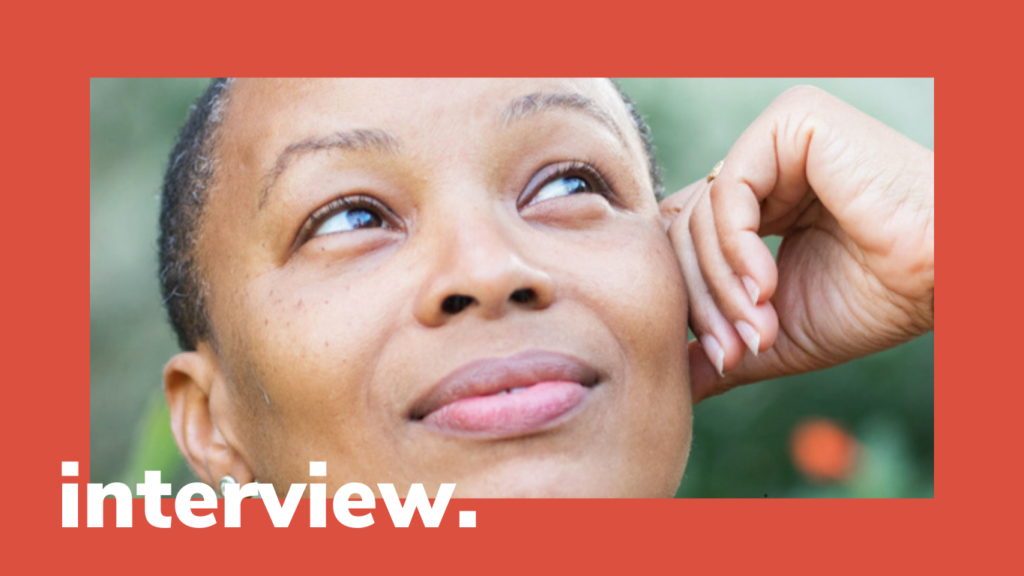
Patricia Sennequier, founder of Beautiful Soul, received on February 16th the 2021 International Coaching Award from the prestigious EMCC Global (European Mentoring & Coaching Council). This distinction rewards her commitment for African women, guided by a genuine desire to make coaching as inclusive and accessible as possible throughout the continent.
Last November, she was alongside Global Mind Consulting teams and numerous experts and coaches to train the 40 women laureates of the L’Oréal-UNESCO Young Talent Award for Women in Science 2020 & 2021, in Kigali, Rwanda. Interview.
GMC – A few months ago, you trained 40 French and English-speaking African women scientists in management. What are the connections between science and management? How does such training benefit these women and how will they be able to put into practice what they have learned in their daily lives?
PS – Oluwatosin, a doctoral student, works in a laboratory in which she is taking an increasingly unifying role. Dr. Aisha has just taken over a biology department. Minty, an associate professor of biochemistry, aspired to become dean of his faculty, but unfortunately did not win enough votes. Fatimata is the head of the establishment committee of an oncology center. All of them directly or indirectly manage budgets (sometimes substantial), resources, teams, women and men. All of them also accompany students on a daily basis.
At the end of our training, these women scientists, each according to their needs, have found keys to better manage their relationships with their superiors, prevent conflicts, define their teams’ priorities, delegate more effectively, initiate feedback, develop their collaborators’ motivation and performance, express themselves more assertively, expand their network quantitatively and qualitatively, etc.
Our coaching allows these women to positively influence their organizations, to gradually make them more and more inclusive, collaborative and efficient structures.
GMC – Beautiful Soul offers various training programs, going beyond management techniques. What is the role of coaching and change management in general? How does this support materialize for individuals and companies?
PS – Our expertise lies in systemic and facilitated change management. We intervene simultaneously at several levels of the organization: employees and teams, management (executives and managers), governance (administrators), by favoring an agile field approach that adapts – almost in real time – to the evolution of the organization. Coaches, trainers, facilitators, therapists, experts in change communication and project management: all our collaborators have the mission to help stepping back, liberate energies and generate awareness that will pull the group upwards. Beyond providing clarity, know-how and tools, the challenge is to raise awareness.
These fundamental transitions in corporate culture are rapid and 86% of our clients observe positive and lasting changes. They are materialized by an individual and collective well-being, and a more harmonious, serene and efficient work together, in just a few weeks.
GMC – On March 8, you are organizing a digital workshop on the theme of burnout, as part of the NAAW program. Why dedicate such a workshop specifically to women? And why the theme of burnout?
PS – Naaw by Beautiful is a professional development platform for African women. Its motto: empower women – and the organizations they work in – to influence their ecosystems, shape them according to their needs and share their unique contributions.
We interviewed 160 women at the beginning of their journey with Naaw to establish a baseline survey and track the impact of our coaching. 66% of them presented precursor or proven signs of burnout when they arrived. We want to help these women, our clients, individually and at their organization level, to understand the multiple facets of this psychological suffering so that they can create rituals that generate positive energy.
This workshop is not exclusively for women… men are of course welcome in these sessions, because the women’s cause is also men’s cause.
GMC – What are the concrete solutions for African women entrepreneurs, leaders, politicians, artists, activists, scientists… to be recognized for their talents and their central role in the development of the continent? What is the place of training in this highlighting of our Afrochampions?
PS – The talents and contributions of the dancer and choreographer Germaine Acogny, Professor Thérèse Moreira Diop, Dr. Marie Louise Correa, Amy Sarr Fall, Thiaba Sy, Madji Sock, Marie Odile Kantoussan Sene, Oulimata Sarr, Moussoukoro Ndiaye – and the list is long – are, each in their own field, undeniably recognized.
What we want to explore is the possibility, for the many women who wish to do so, to embody and play this primordial role for Senegal and Africa, without unnecessary suffering.
Our modern organizations were created by men and for men, and therefore respond primarily to their needs. They are therefore not inclusive, neither for women, nor for people with disabilities, the elderly, etc. Nearly five years ago, I suggested an approach that each organization could adopt to advance inclusiveness within its own organization. I still believe in it. I believe in conversations that deconstruct useless individual and collective mental patterns, and that anchor humanistic values in people’s minds for good. In the sense that it allows awareness, provides means and tools, training is essential to individual and collective development and fulfillment.
